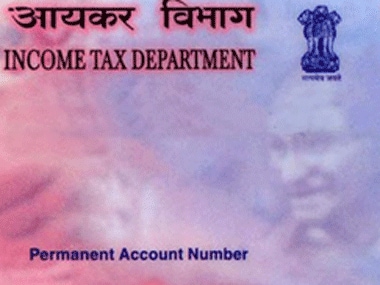New Pan card Rules

The Income Tax Department has revised the permanent account number (PAN) criterion for businesses on Wednesday. From the earlier requirement of applying for PAN only if a firm's turnover crossed Rs 5 lakh during the financial year, it has now been revised to Rs 2.5 lakh with effect from 5 December 2018. All non-individual businesses, therefore, must apply for PAN on or before 31 May of the financial year following the financial year in which they have crossed the above turnover limit.
However, this rule does not apply to individuals.
.
Screws are also being tightened around individuals hiding behind shell companies. Thus, managing directors and directors of companies, partners of firms, trustees and authors of trusts and karta of Hindu Undivided Families must have a PAN even if they are not otherwise required to have one. For them too, the deadline is 31 May.
A PAN is a useful device to track financial transactions so that the tax base can be broadened and tax evasion foiled. It is through PAN that tax can be mandated to be deducted at source which is why every salaried person receiving an annual salary in excess of Rs 2.5 lakh (the extant tax-free limit) is required to apply for and get a PAN.
An individual earning interest from the bank must have a PAN if the annual interest from fixed deposits is likely to exceed Rs 10,000 at the pain of tax being deducted at a penal rate of 20 percent. In fact, this deterrent penal rate is the norm when a recipient does not take the PAN requirement seriously. When the hefty 20 percent is deducted, the hurt individual then rushes with a PAN application to claim a refund of the excess by filing his Income Tax returns.
Sub-registrars cannot register properties in the absence of PAN because they are mandated to report through Annual Information Report the details of sellers of immovable properties for a consideration in excess of Rs 30 lakh. Similarly with mutual funds when investors put in more than Rs 2 lakh in a mutual fund house during a financial year. We are steadily and inexorably moving towards universalisation of PAN which is a good thing.
A universal Aadhaar establishes one’s identity. Similarly, a universal PAN establishes one’s financial personality. Ideally, the twain should meet at some point in time. In the USA, one’s social security number (SSN) serves as one’s permanent account number.
Last year, the Narendra Modi government froze the bank accounts of around two lakh shell companies. Individuals who had no PAN were said to be hiding behind such companies. They apparently rode their luck all these years under a weak regime that mandated PAN for individuals but was slack when it came to entities. Now their goose would be cooked. Any money flowing to them from shell companies would be identified. Thus a crooked bureaucrat or minister bending rules and receiving sizeable bribes in the name of an anonymous shell company would find himself defenseless----the bribe parked in the shell company would sooner or later be moved to the individual. The common PAN number of the remitter and the receiver would be a giveaway. The system would track such devious movements and would be alerted if the recipient’s PAN tallies with one of the directors of the shell company. The transaction would be flagged off for the taxman to follow-up.
It is not only shell companies that have been used as a cat’s paw by crooks but also firms and LLPs (limited liability partnership) among others who hoodwink the government. The Modi government has done well to tighten the noose around their necks. Piercing or lifting the corporate veil has always been considered kosher for tax evasion and other criminal activities.



0 Comments